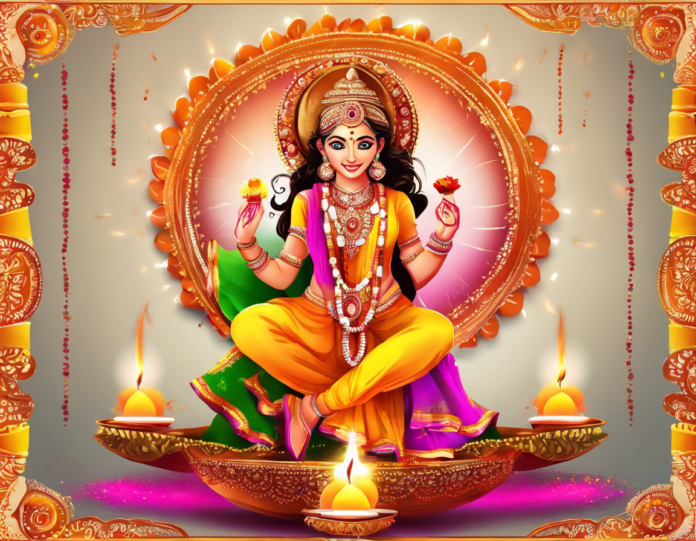Diwali Padwa, also known as Padva or Varsha Pratipada, marks the beginning of the Hindu New Year. It is celebrated on the day following the festival of Diwali, which falls on the first day of the bright fortnight of the month of Kartik in the Hindu calendar. Diwali Padwa 2023 is an auspicious occasion that symbolizes the victory of light over darkness, good over evil, and knowledge over ignorance. This comprehensive guide will delve into the significance of Diwali Padwa, its traditions, rituals, and how it is celebrated across different regions of India.
Significance of Diwali Padwa
Diwali Padwa holds immense religious and cultural significance in Hindu mythology. It is believed that on this day, Lord Vishnu rescued Goddess Lakshmi from the captivity of the demon King Bali and returned her to Vaikuntha, symbolizing the victory of righteousness and prosperity. In Maharashtra, Diwali Padwa is also celebrated as ‘Balipratipada’, honoring King Bali. This day is considered auspicious for embarking on new ventures, marriages, and investments.
Traditional Rituals and Customs
Gudi Padwa
In Maharashtra, Diwali Padwa is also known as Gudi Padwa. It is customary to hoist a ‘Gudi’, a sacred flag, outside the house on this day. The Gudi symbolizes victory and prosperity and is believed to ward off evil spirits. People decorate the Gudi with neem leaves, marigold flowers, sugar crystals, and a silk cloth. It is then worshipped, and prayers are offered to Lord Brahma.
Abhyang Snan
On Diwali Padwa, devotees take an auspicious oil bath, known as ‘Abhyang Snan’. This bath is believed to purify the body, mind, and soul and is considered highly beneficial for overall well-being. After the bath, people wear new clothes and visit temples to seek the blessings of the deities for a prosperous year ahead.
Puja and Aarti
Homes are adorned with colorful rangolis, diyas (earthen lamps), and torans (door hangings) on Diwali Padwa. Families perform a special puja, offering prayers to Lord Ganesha and Goddess Lakshmi for wealth, happiness, and prosperity. The day is marked by the recitation of Vedic mantras, singing bhajans, and performing aarti in the evening.
Diwali Padwa Celebrations Across India
North India – Govardhan Puja
In North India, Diwali Padwa is celebrated as Govardhan Puja. This day commemorates Lord Krishna’s victory over Lord Indra, who was angered by the villagers for not worshiping him. Lord Krishna lifted the Govardhan Hill to protect the villagers from Indra’s wrath. People build miniature hillocks using cow dung, known as ‘Annakut’, and offer various food items to Lord Krishna.
South India – Bali Padyami
In South India, Diwali Padwa is known as Bali Padyami. It celebrates King Bali’s selfless devotion to Lord Vishnu and his unconditional love for his subjects. On this day, people perform rituals to honor King Bali’s sacrifice and seek his blessings for prosperity and happiness in their lives.
West India – Padwa and Annakut
In Gujarat, Diwali Padwa is celebrated as Padwa and Annakut. The day begins with the worship of Lord Krishna and Govardhan Hill. People prepare a grand feast offering, known as Annakut, which consists of a variety of sweets, savory dishes, and fruits. This feast is then shared with family and friends, symbolizing unity and harmony.
FAQs about Diwali Padwa:
1. What is the significance of Gudi Padwa in Maharashtra?
Gudi Padwa marks the beginning of the Marathi New Year and symbolizes victory, prosperity, and the triumph of good over evil.
2. Why is Abhyang Snan performed on Diwali Padwa?
Abhyang Snan is believed to cleanse the body and purify the mind, preparing individuals for a fresh start in the new year.
3. How is Govardhan Puja celebrated in North India?
In North India, people build Annakut (miniature hillocks of food) to commemorate Lord Krishna’s lifting of the Govardhan Hill.
4. What is the significance of Bali Padyami in South India?
Bali Padyami honors King Bali’s devotion and selflessness, emphasizing the importance of dedication to duty and service to others.
5. How is Diwali Padwa celebrated in Gujarat?
In Gujarat, Padwa and Annakut are celebrated with grandeur, including the worship of Lord Krishna and the sharing of a lavish feast with loved ones.
6. Can non-Hindus participate in Diwali Padwa celebrations?
Yes, Diwali Padwa is a joyous occasion that welcomes people of all faiths to join in the celebrations, exchange good wishes, and partake in the festive atmosphere.
7. What are some traditional sweets prepared during Diwali Padwa?
Popular sweets made during Diwali Padwa include puran poli, kheer, shrikhand, ladoos, and jalebis.
8. Is gift-giving a common practice during Diwali Padwa?
Yes, exchanging gifts is a common tradition during Diwali Padwa as a gesture of goodwill, love, and blessings for the new year ahead.
9. How long do Diwali Padwa celebrations typically last?
Diwali Padwa celebrations usually continue for a day, culminating in prayers, feasting, and spending time with family and friends.
10. What are some eco-friendly ways to celebrate Diwali Padwa?
To celebrate Diwali Padwa in an eco-friendly manner, opt for biodegradable decorations, organic diyas, sustainable gifts, and avoiding firecrackers to protect the environment.
Diwali Padwa is a time of joy, renewal, and gratitude, heralding the beginning of a new year filled with blessings and prosperity. Whether in Maharashtra, North India, South India, or Gujarat, the essence of Diwali Padwa lies in upholding traditions, fostering togetherness, and embracing the spirit of hope and positivity for the year ahead.





